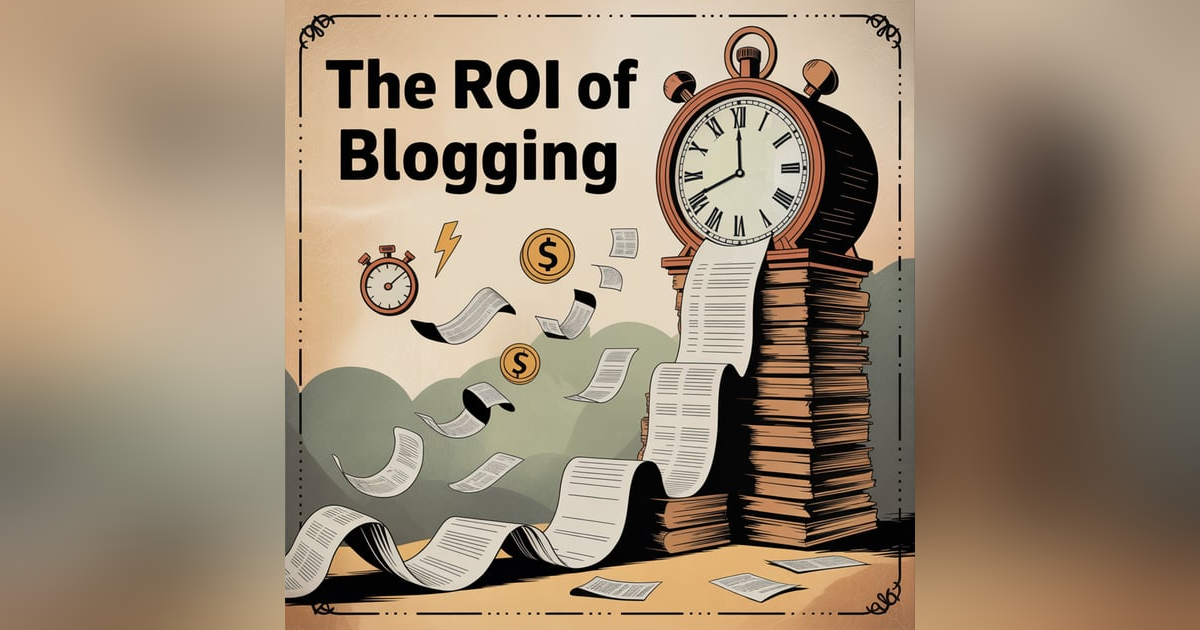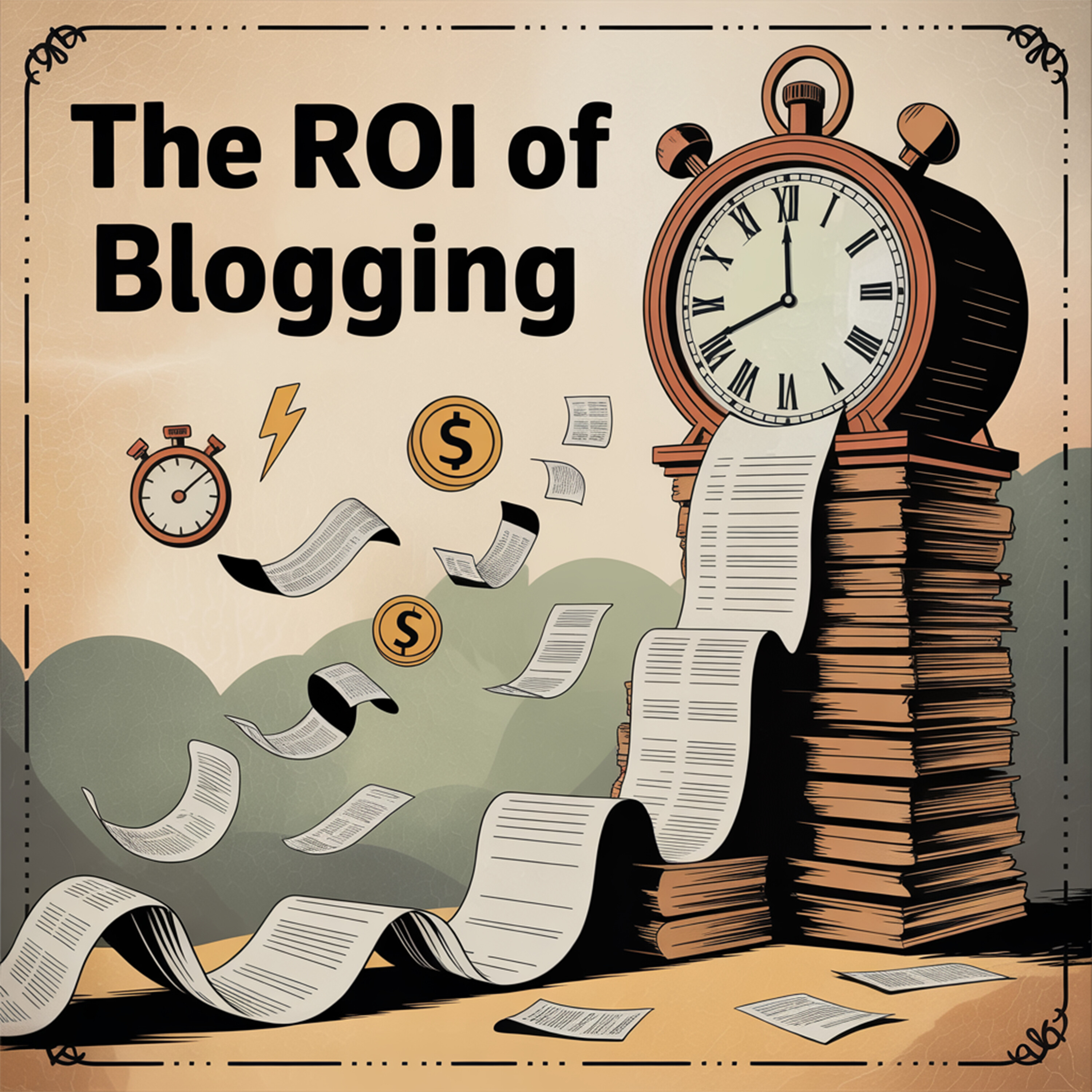The ROI Power of SEO Blogging: Time, Money, and Energy Explained with Favour Obasi-ike


The ROI Power of SEO Blogging: Time, Money, and Energy Explained with Favour Obasi-Ike | Get exclusive SEO newsletters in your inbox.
In this episode, we explain the Return on Investment (ROI) of blogging for businesses, emphasizing the long-term benefits in time, money, and energy highlighting that blogging, even using AI for content creation with human refinement, significantly boosts online visibility and authority by answering frequently asked questions.
Key strategies include optimizing content with keywords for search engines, updating older posts, and repurposing existing content from platforms like Clubhouse as blog posts or podcast episodes to maximize reach. The conversation also touches on the importance of creating an author profile for credibility and using search operators to understand market positioning, ultimately asserting that consistent, relevant content creation is crucial for organic growth and sustained business presence.
Next Steps for Digital Marketing + SEO Services:
FAQs on Blogging ROI and Digital Authority in the AI Age
1. What is the fundamental concept behind the ROI of blogging?
The Return on Investment (ROI) of blogging is viewed through three core ingredients: time, money, and energy. While many associate ROI primarily with monetary gain, the discussion emphasizes the long-term benefits and efficiency blogging can bring to a business. The idea is that a focused investment of these three resources into blogging can lead to significant and sustained positive outcomes, even if the initial outlay seems small. The goal is to maximize the impact of content creation by strategically using these ingredients, ultimately leading to increased visibility, authority, and potential for passive income.
2. How can I determine if blogging is a worthwhile strategy for my business or industry?
A practical method to assess the relevance of blogging for your business is to use Google search operators. By typing "blog / [your topic]" (e.g., "blog / social media tips" or "blog / how to cook chicken") into Google, you can see existing blogs that cover your intended subject matter. This directly shows you what Google recognizes as relevant content in your niche, and whether your competitors are present. If you don't see your own website or content in these results, it indicates a missed opportunity and suggests that blogging could be a beneficial strategy to gain visibility and authority in your industry. Additionally, using "site:yourdomain.com [keyword]" can reveal if your existing content is being indexed for specific keywords.
3. How does updating old blog content contribute to its ROI, especially in the context of AI?
Updating older blog content is crucial for maintaining and enhancing its ROI. Search engines, particularly with the rise of AI, prioritize "last mod" (last modified) dates. This means that content that has been recently updated and republished is more likely to appear in search results. By updating existing blogs, you signal to search engines that your information is fresh and relevant, increasing its visibility and authority. This practice can double the efficiency of your initial time investment, as you're leveraging existing content to continue attracting traffic and engagement, rather than starting entirely from scratch with new articles.
4. Can AI tools like ChatGPT be used to effectively create blog content, and what is the recommended best practice?
Yes, AI tools like ChatGPT can be effectively used for blog content creation, but the best practice is to use them as a first draft or a starting point, rather than as the sole author. While AI can generate content, it's crucial for the blogger to "humanize" it, injecting their unique voice, insights, and brand personality. One participant even mentioned using AI to write content specifically for their local business and achieving top search rankings after humanizing it. The recommendation is to use AI to get content ideas, summaries, or even initial drafts, and then to personally refine and optimize it. This ensures that the content is not only informative but also authentic and engaging for the target audience.
5. How can I leverage various online platforms (search engines, social media, AI answer engines) to maximize the reach of my blog content?
To maximize the reach of your blog content across various platforms, a balanced strategy is recommended:
- Search Engines (Traditional): Use Google and Bing for traditional search visibility.
- Answer Engines (Voice Search): Consider how your content would be found via voice assistants like Siri, Alexa, or Google Assistant, which provide direct answers.
- AI Search Engines: Utilize platforms like ChatGPT, Perplexity, and Grok for AI-driven responses.
By observing which brands consistently appear across all these platforms for a given topic, you can identify top authorities. Your goal is to become one such authority by consistently providing fresh, recent, and quick information. This involves writing extensive blog posts on your website (80% of your effort) and then leveraging social media (20% of your effort) to promote and build community around that content. People often discover information through search and then seek out the brand on social media, so a cohesive presence across all platforms is vital.
6. What is the significance of an "author profile" in blogging for increasing online visibility and authority?
An author profile attached to your blog posts significantly boosts your online visibility and authority. Most website platforms (WordPress, Wix, Squarespace, etc.) allow you to create an author profile for your published content. This profile typically includes links to your social media (LinkedIn, Facebook, X, etc.), creating a comprehensive digital footprint. Search engines and AI servers actively look for authors, profiles, and associated links, which helps them understand the context and credibility of your content. By presenting your blogs under a clear author profile (either your personal name or company name), you establish yourself or your brand as a recognized expert, increasing your chances of showing up for topical searches and building trust with your audience.
7. How can I transform existing content, like podcast episodes or Clubhouse replays, into effective blog posts to drive traffic?
Existing audio content, such as podcast episodes or Clubhouse replays, can be efficiently repurposed into blog posts to drive traffic. The process involves:
- Transcribing the audio: Use tools like Notebook LM (Google) or Descript to transcribe the audio into text.
- Extracting key information: From the transcription, identify frequently asked questions (FAQs) and summarize the main points.
- Humanizing and optimizing: Take the summary and use AI tools (like ChatGPT) to refine it into a comprehensive blog post. Crucially, humanize the AI-generated text to match your brand's voice.
- SEO Optimization: Incorporate relevant keywords into the blog post's title, body, and URL to improve searchability.
- Linking: Embed the audio (podcast or replay) within the blog post and link the blog post back to your website, social media, and any other relevant platforms.
This strategy maximizes content that you've already invested time and energy into, effectively "killing two birds with one stone" by reaching both audio listeners and text readers, and creating a loop of traffic between different content formats.
8. What is the "crawl budget" in relation to publishing multiple blog posts per day, and how does it affect content indexing?
The "crawl budget" refers to the limit on how many new or updated links Google Search Console will process from your website each day. While you can publish an unlimited number of blogs on your own website (your "house"), Google has a quota, typically allowing you to submit around 10 links per day for indexing. This means that even if you publish 20 blogs in a day, only the first 10 submitted will likely be immediately logged and processed by Google's system within a 24-hour period. Each published post is logged with a precise date and time stamp (hours, minutes, seconds, milliseconds). Understanding the crawl budget is important for managing expectations regarding how quickly your new content will appear in search results and for strategically planning your publishing schedule if you aim for rapid indexing.
Digital Marketing SEO Resources:
Brands We Love and Support
Discover Vegan-based Luxury Experiences | Loving Me Beauty Beauty Products
See Privacy Policy at https://art19.com/privacy and California Privacy Notice at https://art19.com/privacy#do-not-sell-my-info.


